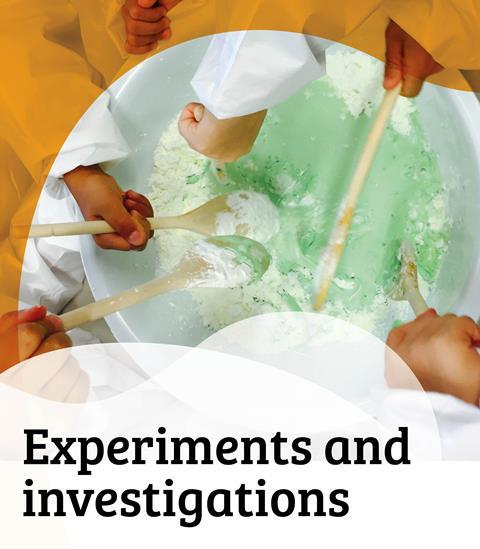The Royal Society of Chemistry recognises the value of primary science in developing a person’s chemical understanding. Through the teaching of fundamental topics such as changing of state and properties of materials you are laying the foundations of chemistry.
We have curated collections for each chemistry statement from the national curriculum science programmes of study (2014), to support you in identifying the most appropriate resources from the Royal Society of Chemistry and using them with your class.
To access a collection click the corresponding statement below.
| Topic | Statement |
|---|
| Rocks |
C3a Compare and group together different kinds of rocks on the basis of their appearance and simple physical properties |
| C3b Describe in simple terms how fossils are formed when things that have lived are trapped within rock |
C3c Recognise that soils are made from rocks and organic matter
|
| States of matter |
C4a Compare and group together materials according to whether they are solids, liquids or gases |
| C4b Observe that some materials change state when they are heated or cooled, and measure or research the temperature at which this happens in degrees Celsius (°C) |
| C4c Identify the part played by evaporation and condensation in the water cycle and associate the rate of evaporation with temperature |
| Properties and changes of materials |
C5a Compare and group together everyday materials on the basis of their properties, including hardness, solubility, transparency, conductivity (electrical and thermal), and response to magnets |
| C5b Know that some materials will dissolve in liquid to form a solution, and describe how to recover a substance from a solution |
| C5c Use knowledge of solids, liquids and gases to decide how mixtures might be separated, including through filtering, sieving and evaporating |
| C5d Give reasons, based on evidence from comparative and fair tests, for the particular uses of everyday materials including metals, wood and plastic |
| C5e Demonstrate that dissolving, mixing and change of state are reversible |
| C5f Explain that some changes result in the formation of new materials, and that this kind of change is not usually reversible, including changes associated with burning and the action of acid on bicarbonate of soda |
Additional information
This table contains public sector information from the key stage 2 science sampling test framework: national curriculum tests from 2016, licenced under an Open Government licence v3.0, © Crown copyright 2015.
© Royal Society of Chemistry









No comments yet